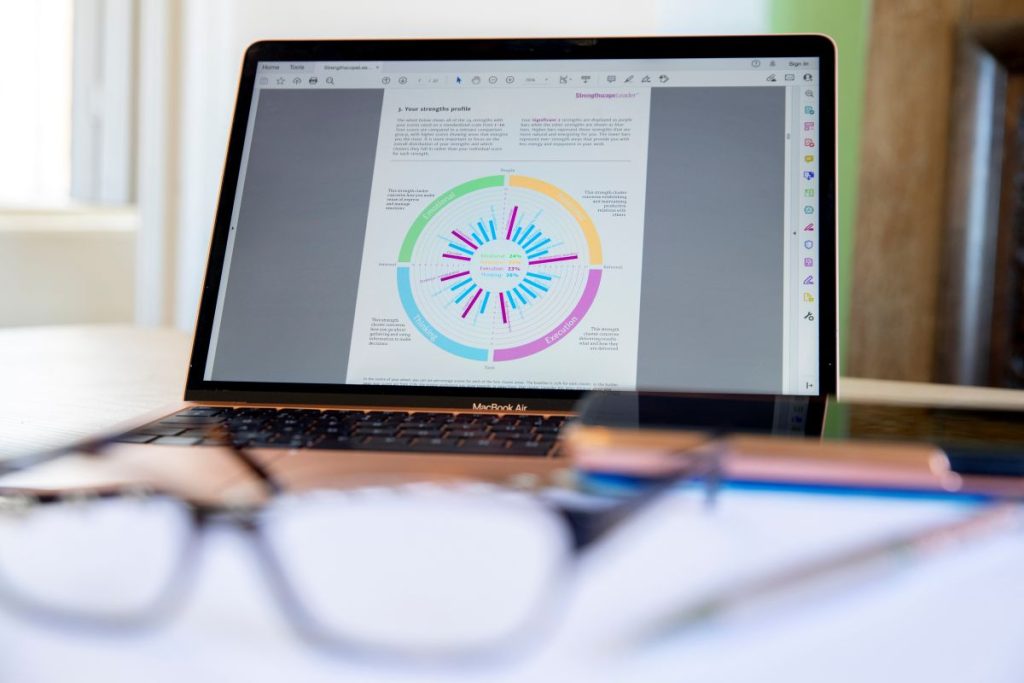How aware are you of your own unique strengths?
Most of us can quickly name the things we struggle with. But ask someone what their greatest strengths are, and often there’s a silence. The negativity bias conditions us to notice weaknesses and try to “fix” them. Yet what if the real key to growth and wellbeing is focusing on what’s already strong within us?
When you understand and harness your strengths, you unlock more than skills; you unlock energy. Energy that fuels confidence, motivation, and empowerment, and it bolsters mental health (Gable and Haidt, 2005).
The Science of Strengths: Energy, Confidence & Wellbeing
The positive psychology approach of strengths flips the traditional focus on its head. Instead of asking, “What’s wrong with me?” it asks, “What’s unique about me that makes me thrive?” Research shows that people who use their strengths every day are not only more engaged and productive at work, but also experience higher wellbeing and lower levels of stress (Rath & Conchie, 2008; Wood et al., 2011).
Think of strengths as your natural sources of mental energy. When you work with them, you get more of that buzz in your day. Spend too much time trying to correct weaknesses, however, and the opposite happens; you feel drained, frustrated, and at risk of burnout.

Graphic by Del Croft
Consider your strengths as the wind in your sails.
They are the energy and motivators that help you soar across the water to your goal, like reaching a desert island.
This approach does not suggest you ignore your weaknesses, but consider them carefully. Weaknesses above the waterline will not hinder your progress, whereas those below may have a limiting effect, slowing your progress and potentially preventing you from reaching your goal. So, we accept those above the waterline as allowable weaknesses—no one is strong at everything—but we address those below the waterline because they have a limiting impact.
Strengths Leave Clues: Here’s How to Notice Them
Uncovering your strengths can be surprisingly tricky. Because they come so naturally, you might overlook them. Try these ways to spot them:
-
Follow your energy: Notice the moments when you feel that buzz or finish a task more energised than when you started.
-
Listen to feedback: Ask friends, family, or colleagues, “When do you see me at my best?” Others often see what we cannot. Focus on common themes in how you work.
-
Reflect on wins: Think back to times you felt proud or successful. What qualities helped you achieve those outcomes?
-
Get some support: Organisations like Personal Strengths Coaching can guide you through more formal tools.

Photo by Kirsty Edmonds
From Awareness to Action: Making Strengths Work for You
Once you’ve spotted them, the goal is to use your strengths intentionally:
-
Find small, daily opportunities: Look for ways to apply your strengths in everyday life, whether at work, in hobbies, or at home.
-
Stretch wisely: Push your strengths into new situations, but watch for overuse. A strength like empathy is powerful, but without boundaries it can lead to exhaustion.
-
Combine them: Pairing strengths multiplies their effect. For example, creativity plus persuasiveness can help you come up with great ideas and get others on board.
-
Build habits around energy: Structure your day so there is opportunity to use your strengths every day.
Leaders: Strengths Should Be on Your Agenda
For leaders, a strengths-based approach is transformative, not just for individuals but also for teams. Identify strengths within your team members, make conversations about strengths part of one-to-ones, celebrate strengths in team meetings, and encourage team members to share their strengths. When people feel seen for what they naturally bring, they thrive.
Final Thought
Focusing on strengths is not about ignoring weaknesses. It is about choosing to build from what energises you. When you align your life and work with your unique strengths, you do not just perform better; you protect your mental wellbeing and unlock a more sustainable source of motivation.
References
- Rath, T., & Conchie, B. (2008). Strengths based leadership: Great leaders, teams and why people follow. NY: Gallup Press.
- Wood, A. M., Linley, P. A., Maltby, J., Kashdan, T. B., & Hurling, R. (2011). Using personal and psychological strengths leads to increases in well-being over time: A longitudinal study and the development of the strengths use questionnaire. Personality and Individual Differences, 50(1), 15-19.
- Gable, Shelly & Haidt, Jonathan. (2005). What (and Why) Is Positive Psychology?. Review of General Psychology. 9. 10.1037/1089-2680.9.2.103.
Main – Image by Berit Kessler





